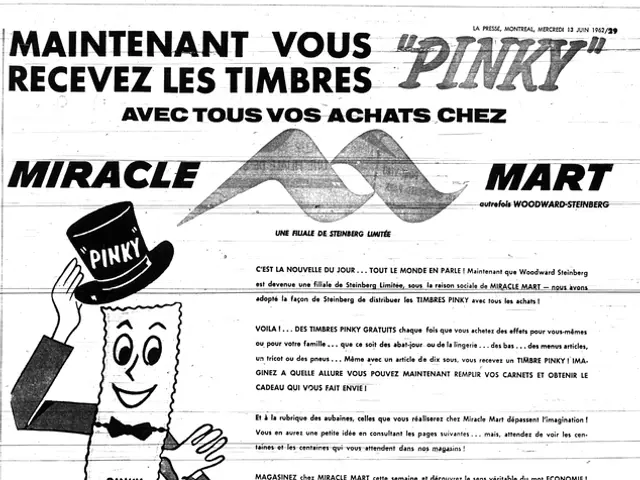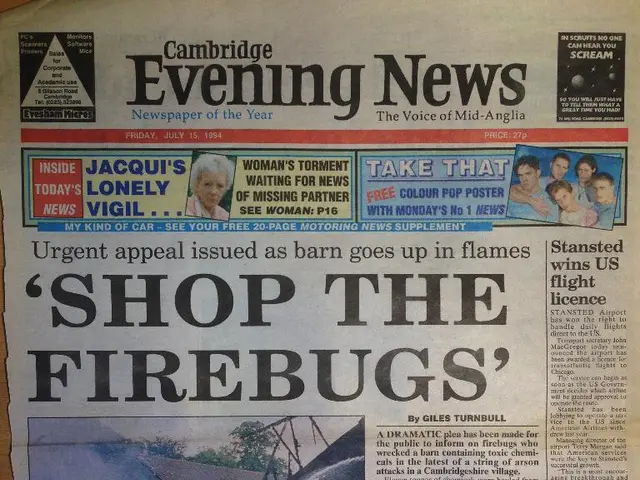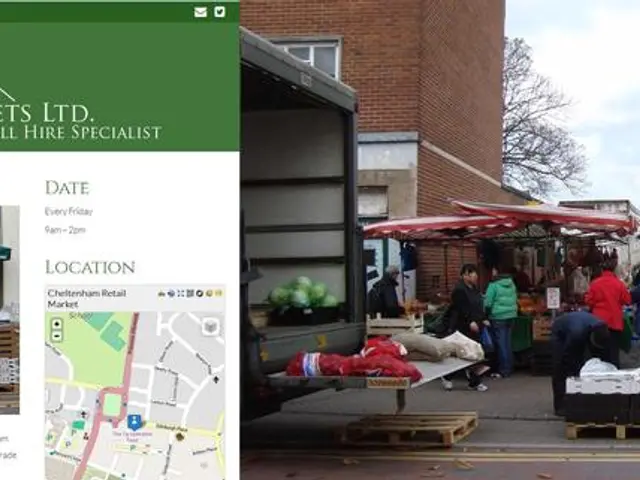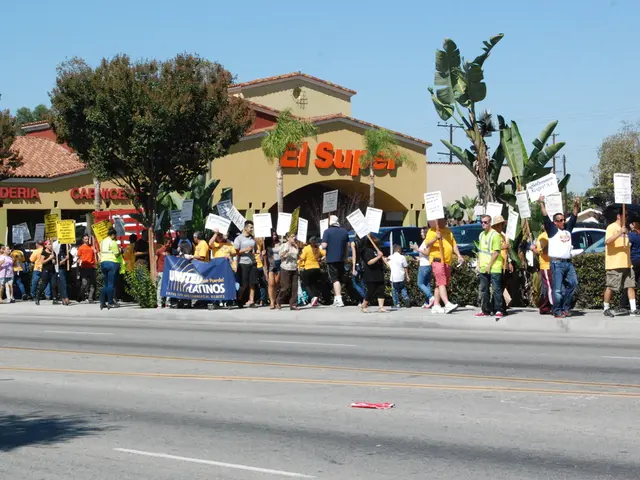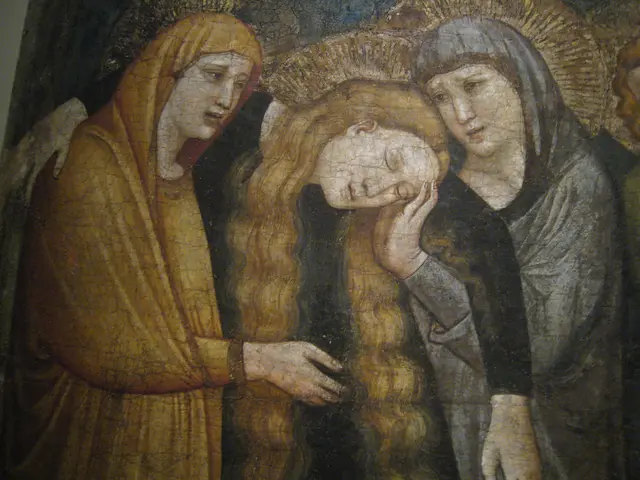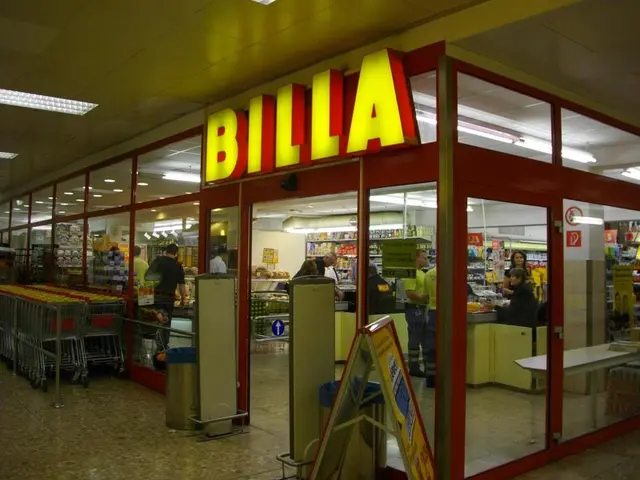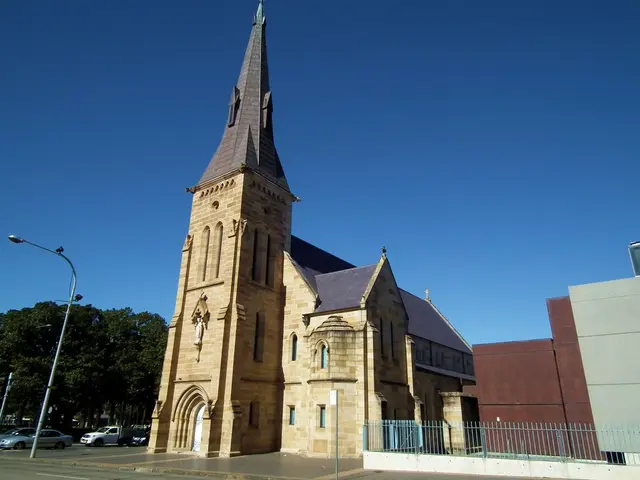Exploration of Missouri: A Detailed Study on Missouri's Landscapes and Residents
The Missouri Office of the Secretary of State, based in Jefferson City, has received a substantial amount of funding to support various archival and historical projects across the state. The total funding awarded amounts to $3,269,065.
One of the key recipients is the Missouri State Archives, which received funds for several projects. This includes $42,670 to hire electronic records consultants to develop and conduct workshops on electronic records issues, and $55,332 for a regrant project to preserve and make accessible the state's historic records. The Missouri State Archives also received $148,577 to digitize the case files of the Supreme Court of Missouri, 1821-1865.
The Missouri Historical Records Advisory Board (MHRAB) also received significant funding. MHRAB received $300,000 ($300,000 matching) for up to three years for its SHRAB Regrant Project, and $67,808 to support basic activities, workshops, and a regrant program that will support up to 30 institutions in their efforts to preserve and provide access to historical records.
Other institutions receiving funding include William Woods University, which received $4,610 for an archival consultancy, and Friends of the Missouri State Archives, which received $9,295 to fund the administrative expenses of MHRAB for one year.
The Missouri Humanities Council received $20,000 to support a planning grant for a collaborative to identify and make available records documenting Missouri's Native American history. Washington University in St. Louis received $34,433 to digitise and stream online 932 audio cassettes and 16 audio reels containing speaking engagements and public readings from approximately 700 poets.
In addition, the University of Missouri-Columbia received $30,640 to preserve, microfilm, and catalog photoprints, and the University of Missouri-St. Louis received $30,032 to identify and preserve historical records relating to African-American history.
The State Historical Society of Missouri received $500,000 to preserve, arrange, and describe four key sets of Missouri Congressional papers. However, the specific sets of papers and the respective funding amounts for these collections are not detailed in the available search data.
Further direct inquiry with the State Historical Society or specific archival grant records would be needed to obtain this precise information.
Other institutions receiving funding include the Kansas City Museum Association, which received $60,695 to develop a coherent program and access system, and the St. Louis Art Museum, which received $32,493 to establish an archival and records management program.
The Missouri Botanical Garden received $13,378 to process the papers of George Engleman and Henry Shaw, and the Concordia Historical Institute received $27,500 to appraise, arrange, and describe the papers of Walter A. Maier and Eugene Bertermann.
Washington University in St. Louis received $108,000 for the Eye on the Prize Film Preservation Project, and the Nelson Gallery Foundation received $85,776 to implement an archival and records management program.
The Missouri Office of the Secretary of State also received funding for various administrative support roles for MHRAB, including $5,817, $7,297, and $4,983.
In summary, the funding awarded to various archival and historical institutions in Missouri will support a wide range of projects aimed at preserving and making accessible important historical records. While the specific sets of Missouri Congressional papers preserved by the State Historical Society of Missouri are not detailed in the provided search results, further inquiry is encouraged to obtain more information.
- The Missouri Historical Records Advisory Board (MHRAB) received funding for education and self-development, as part of their SHRAB Regrant Project, with the aim of training up to 30 institutions in preserving and providing access to historical records.
- The Missouri State Archives, one of the key recipients of the funding, also dedicated resources towards education and self-development, organizing workshops on electronic records issues to educate individuals on proper management of digital archives.

